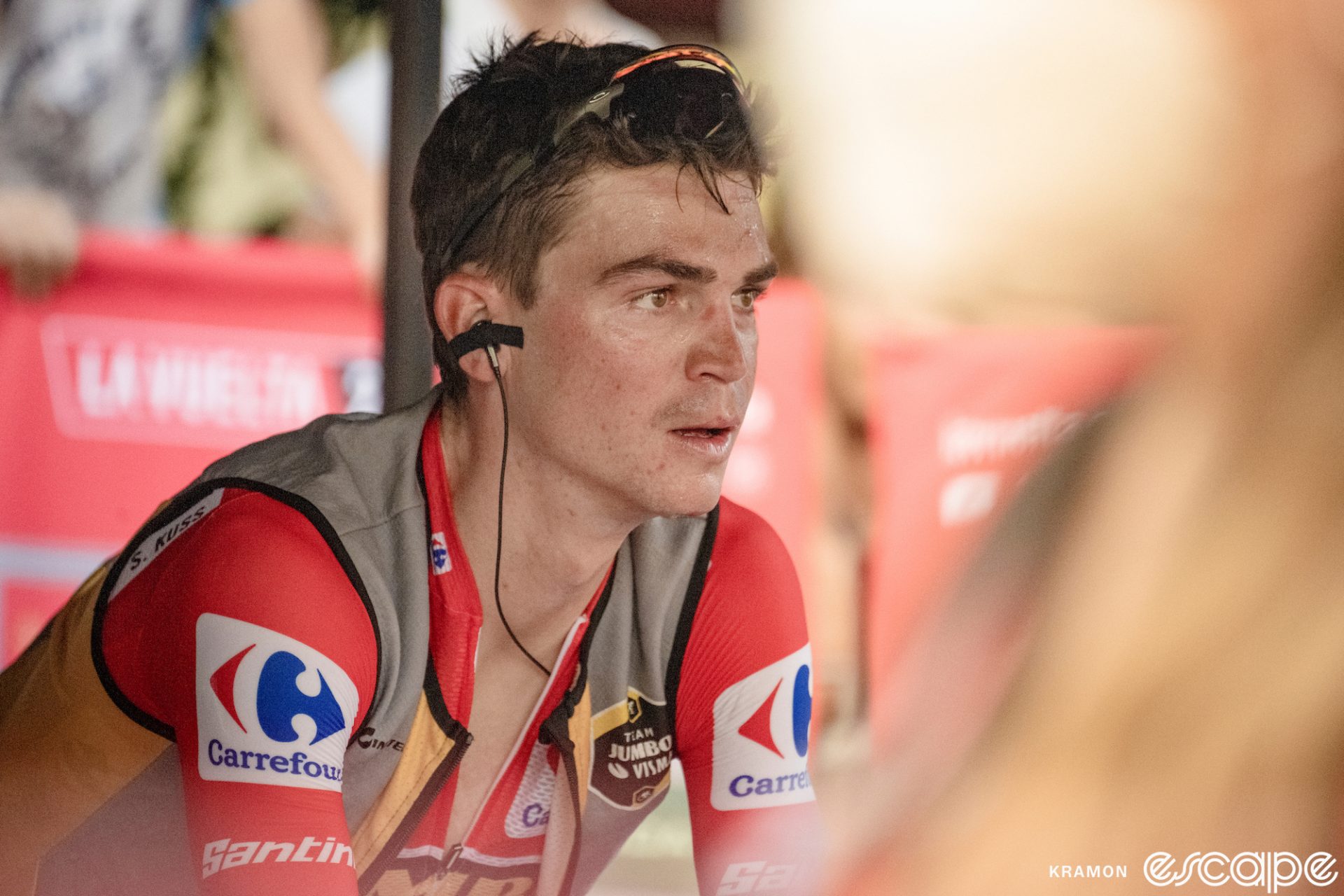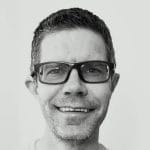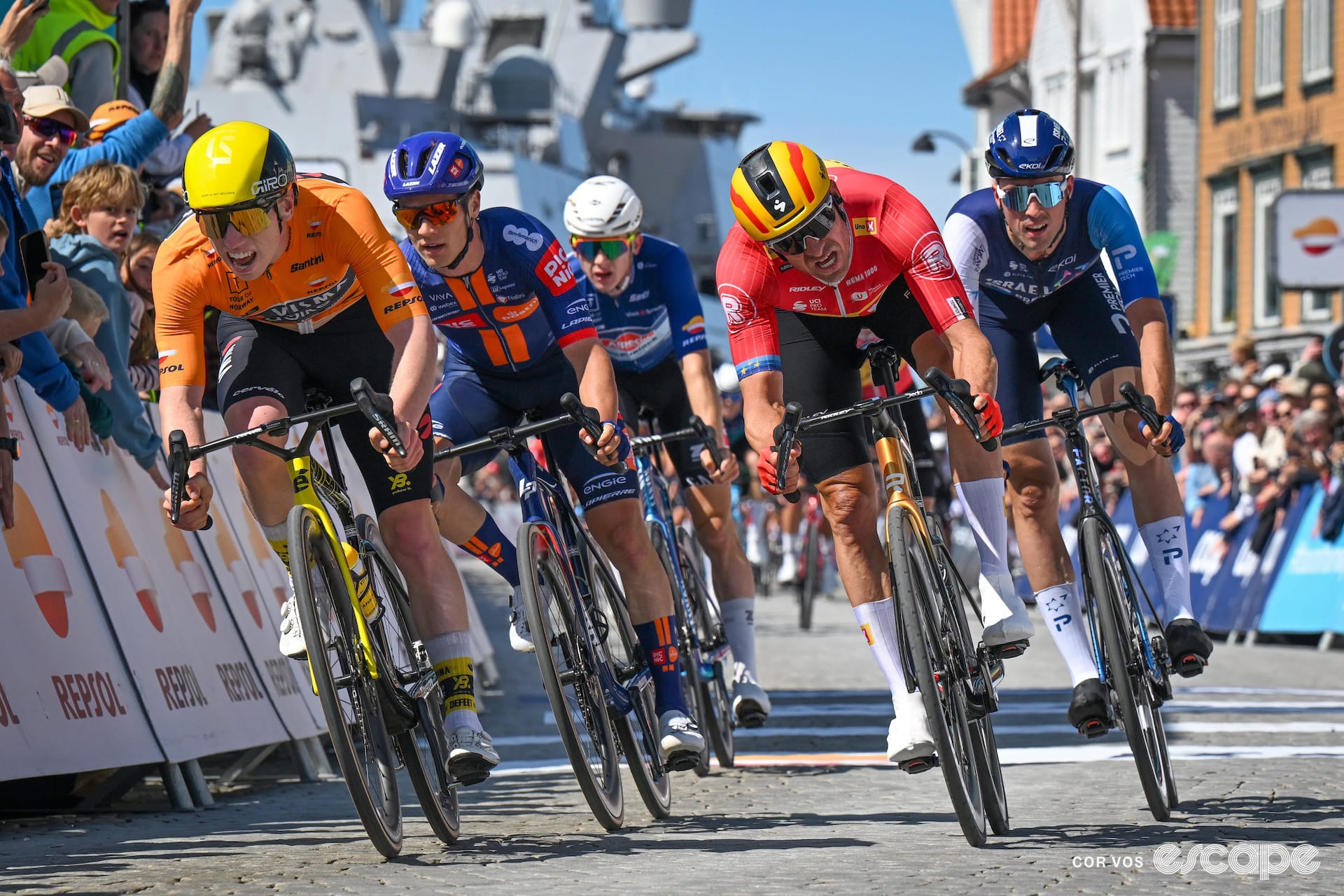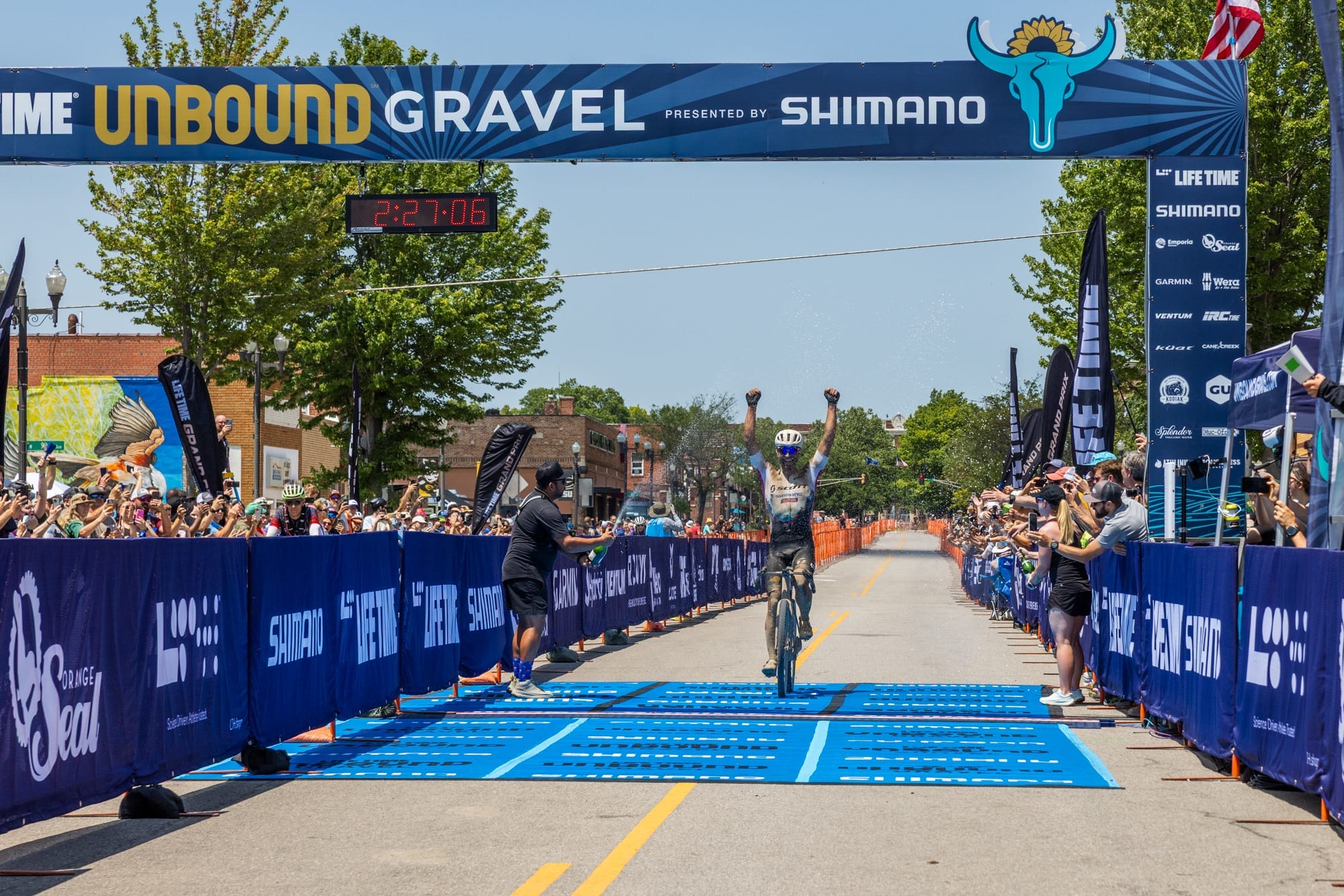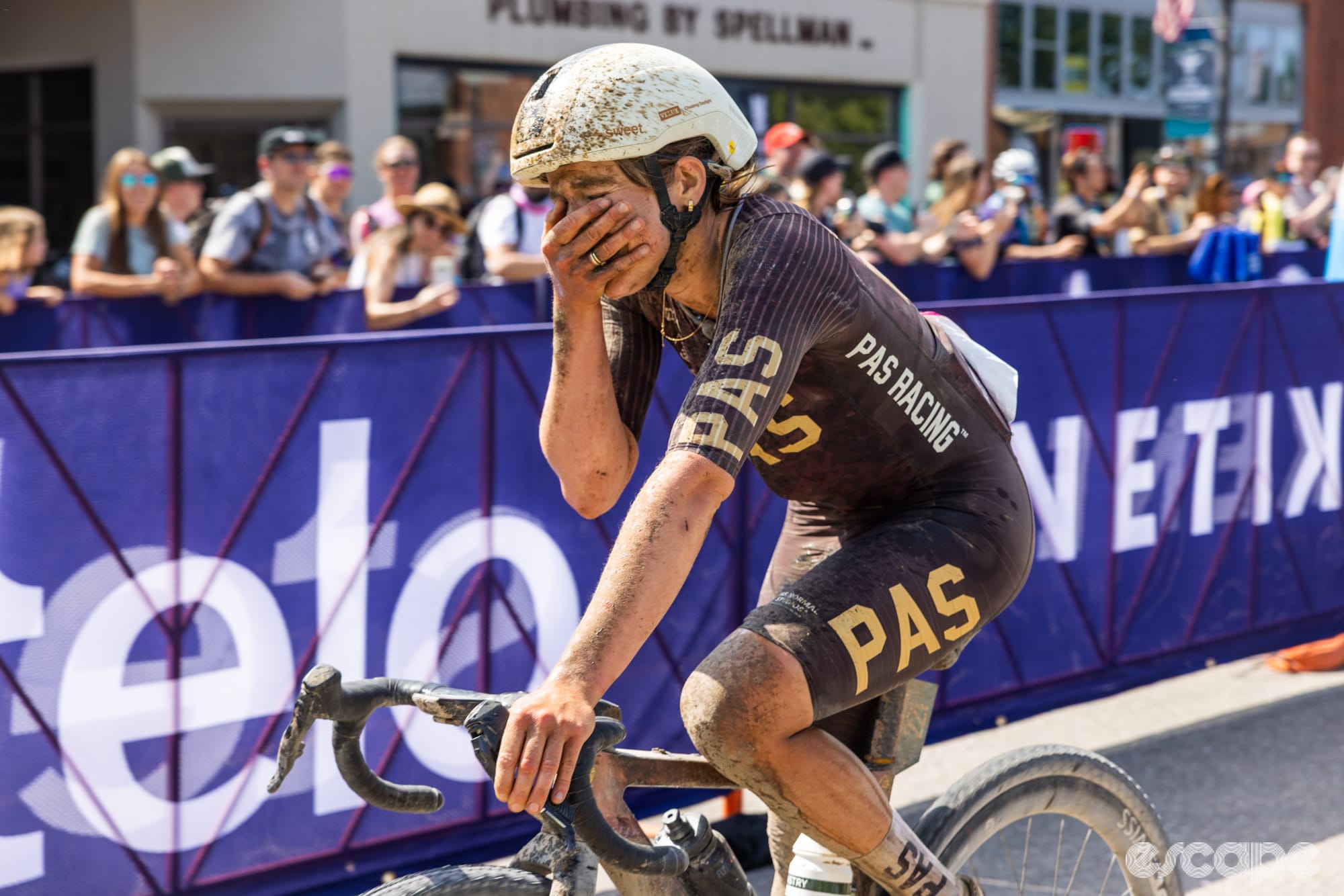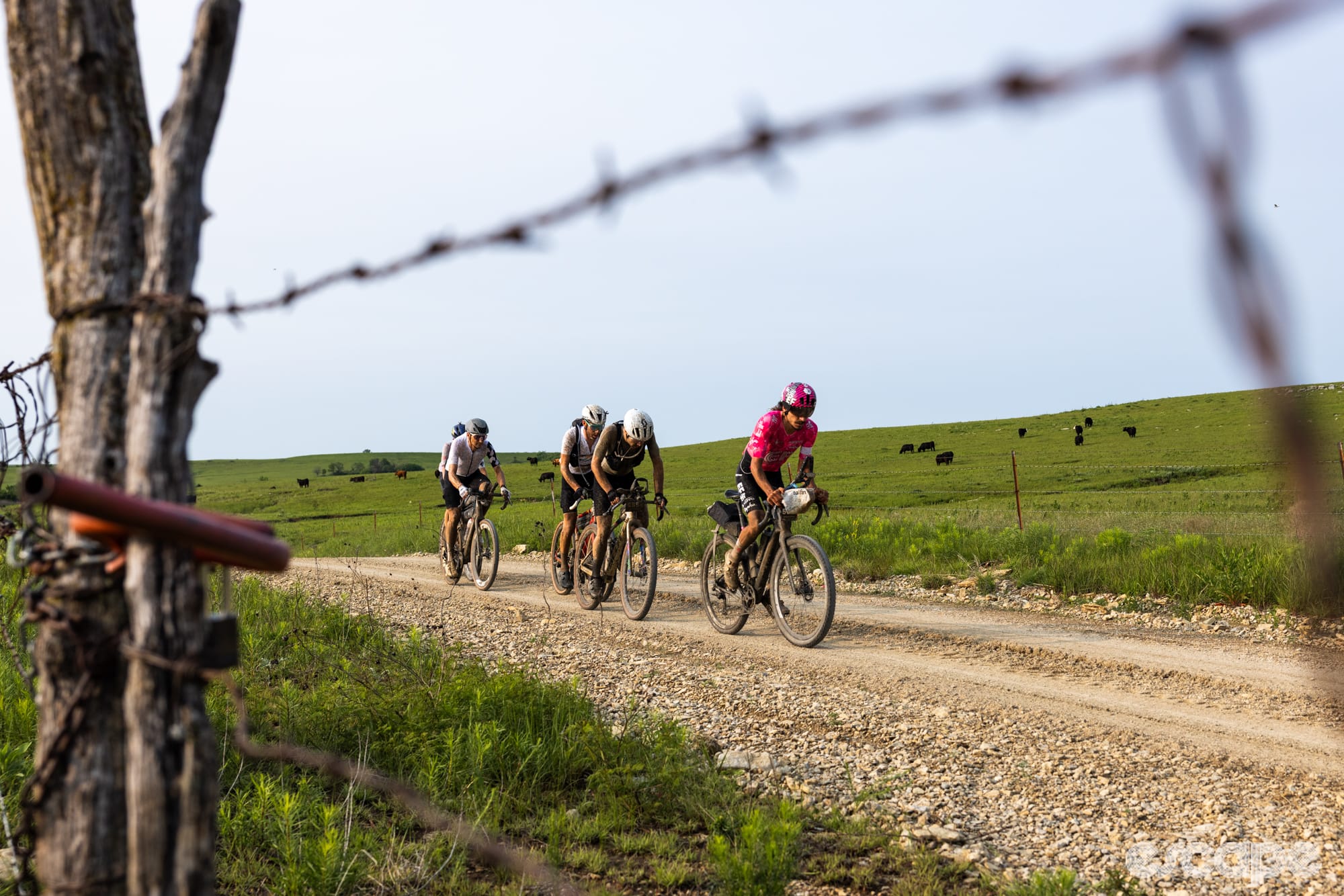Thursday was Sepp Kuss day in Durango: a day for this outdoors-and-bikes loving town of 20,000 to celebrate a local boy made good. And the man of the hour was duly feted and fussed over, and had himself a fine time as the focus of attention.
It turns out, Kuss is getting increasingly comfortable with the spotlight. So much so that he wants more of it in 2024.
"I think the thing I'm most looking forward to is going to the Vuelta being the defending champion, and also going to the Tour [and] doing my best there, whether it's for myself or for Jonas [Vingegaard]," he said in a roundtable interview with a few journalists, including Escape Collective's Caley Fretz.
Wait, what?
Kuss allowed that that Tour isn't his favorite race, but that it is obviously the most important on the calendar, and he sees the potential there for a bigger role than domestique. "I'm happy to, given the circumstances, be more a helper in the Tour, because depending on the route, it's not ideal for me," he said. "[2023] was a bit of an exception; it was a pretty good route for me and just by virtue of doing my job I was with the best guys in the GC for a while, while not really even thinking about it. So we'll see what the route is like in the [2024] Tour, maybe it's something that I can go for."
Like, as a team leader?
"Yeah, I think why not?" he replied, with the caveat that it's always up to the team. While Kuss said he thinks the Vuelta suits him better and he wants to defend his title there, he suggested that his breakthrough Grand Tour victory has created a mental shift that opens up more opportunity in other races, even the Tour, although he characterizes that as something more like an insurance option than co-equal leadership.
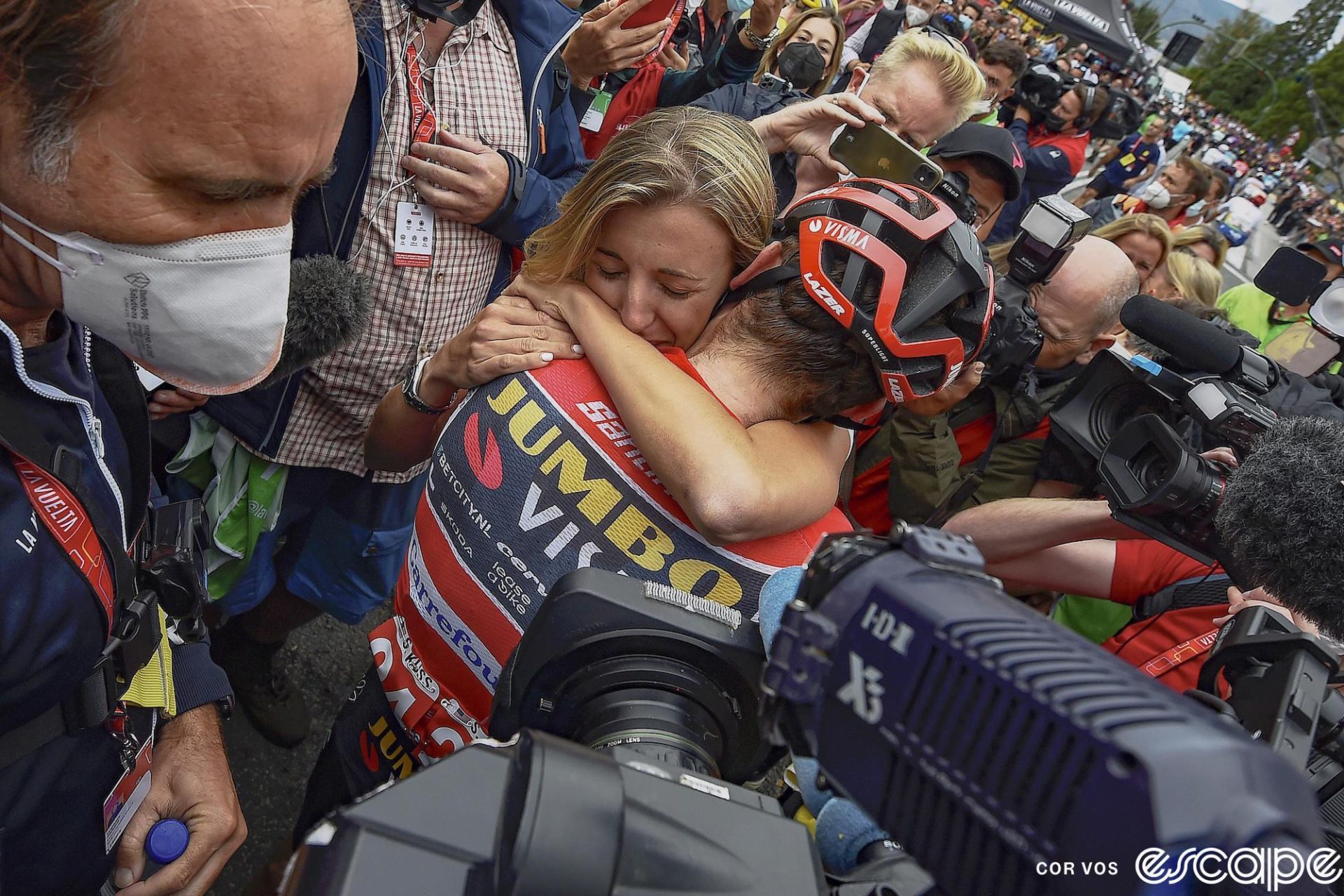
"I think I can stay more concentrated in the race if I'm thinking, 'Okay, yeah, don't just let off so easy.' You know, my wife, every race, she says, 'Don't just lose 20 minutes in one stage because you never know; half the peloton might get COVID.' And I'm like, 'Yeah, I'm not gonna win anyways, it doesn't matter,' and she's like, 'Yeah, but you never know.' So in the Vuelta, already in the first stages [I thought] 'Oh, I'm going to lose as much time as I can, just save every ounce of energy.' And then, yeah, I felt good. So I was like, 'Why would I just lose time for the sake of losing time?' So yeah, I think being in the GC role or shadow GC role keeps me more mentally sharp. Being in that, let's say shadow leader role is, I think, a good middle ground for me."
Kuss partly credits Vingegaard's help at the Vuelta with that shift. "Jonas, especially, he's more of a verbal leader. So it's more his nature, but he really coached me in certain situations, when I needed to be at the front," Kuss said. "And, just from his experience, winning two Tours in a row, you have to be really sharp every day, and he really helped me stay on top of things where I'm normally kind of checked out."
He realizes, of course, that it's not so simple, and also that the circumstances that enabled his Vuelta win will likely not be repeated. "Now I know that I'm capable of winning a Grand Tour. And that definitely gives me a lot of confidence," he said. "I know that I can take my body to that level and also my mind to that level, like I can survive the three weeks of pressure and everything.
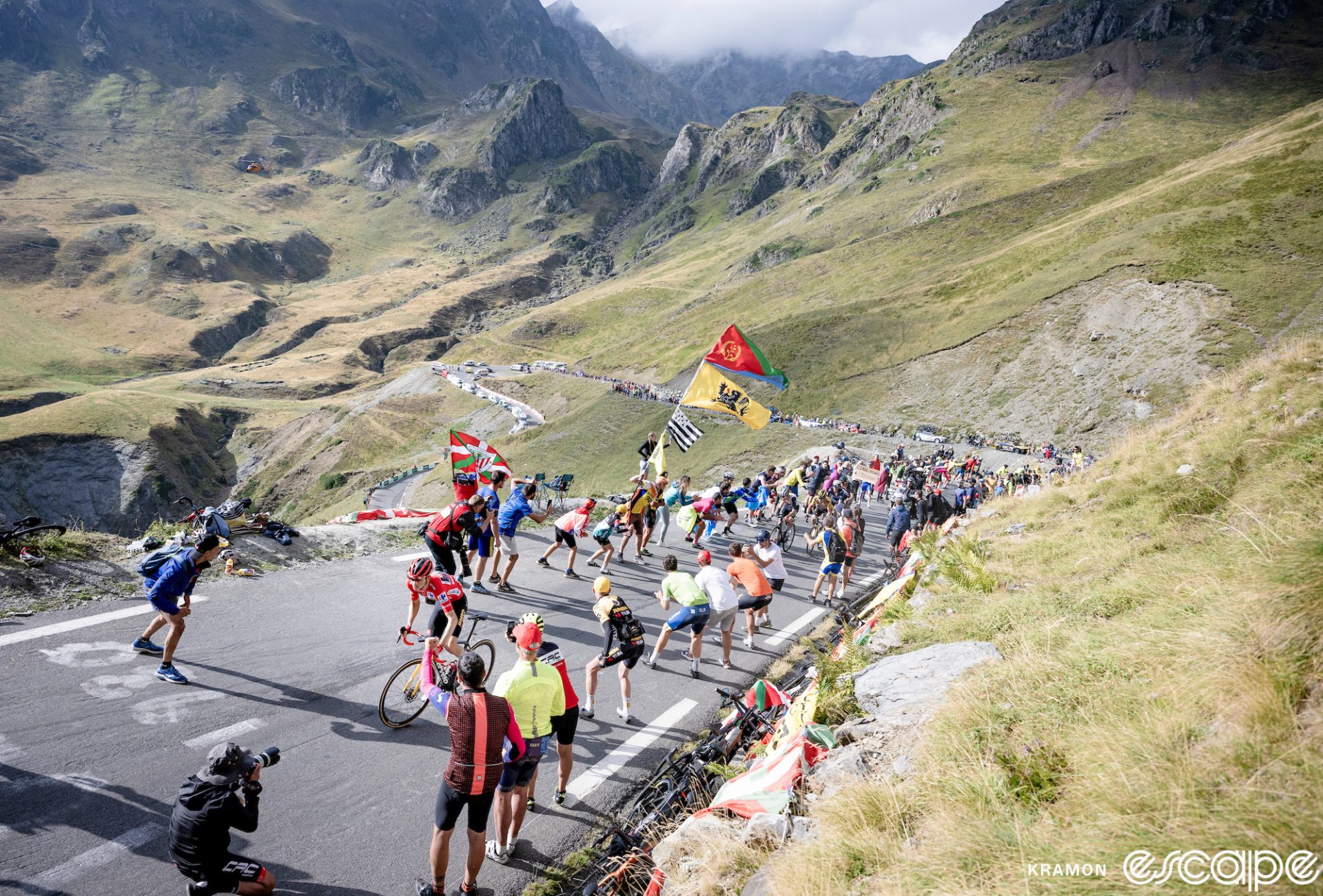
"But I also realized that when I won the Vuelta, I was in a really unique situation where I never went into the race feeling any expectation, any leadership pressure, I just did my best every day. And in the end, had I failed nobody would have faulted me. But if you go into a race with that pressure, then it's a lot different. So I think it's finding the balance where I can get the most out of myself from that mental standpoint."
It's undoubtedly helpful that Kuss has learned the ins and outs of racing for GC from two of the best riders in the sport, and as much as he credits Vingegaard's vocal leadership style, the quieter approach of soon-to-be-former teammate Primož Roglič was equally vital. "Primož pretty much brought our team to the level it is now; he really pushed everyone in the team to be their best, and that just doing well enough wasn't sufficient," Kuss said.
"I learned a lot through him, not necessarily from him teaching me things, but just how he developed as a rider and what he learned. Your leader makes a mistake, and you see him correct that mistake in a later race, you also learn from that. And so just seeing how he is as a racer now from when he first started and we were supporting him in the Grand Tours is really, really valuable."
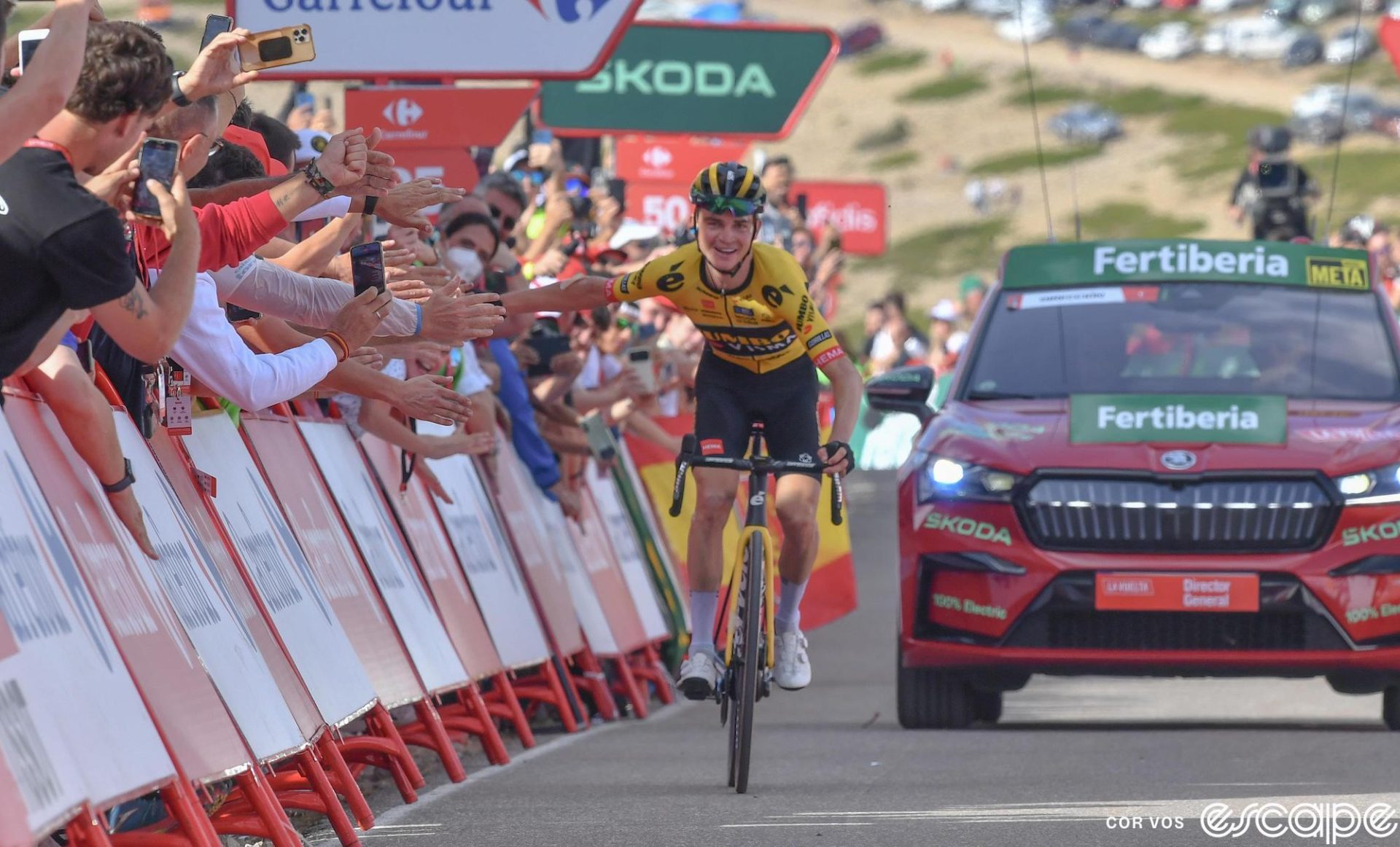
What is Kuss's new mental standpoint? "I think it depends on what situation I'm in," he replied. "I think if I'm trying to win the race, I've learned I need to be a bit more cutthroat, more selfish, if you will. You really have to just focus on you, for better or for worse. Because I think there's a lot of situations I put myself in in the Vuelta where I was still in the mindset of a teammate or a guy that didn't have that killer instinct. And it still worked for me and I was proud of how I did it and how I handled it. But I also realize that a lot of the, let's say, winners have a different mentality than me and I have to find that balance without losing who I am as a person."
Kuss said that Roglič's move to Bora-Hansgrohe is "better for everybody. He can go now to a team at Bora where he feels he deserves and has everyone behind him." Jumbo-Visma is, of course, still packed with talented racers, both established like Vingegaard and still developing. And the arrival of riders like Norwegian neo-pro prospect Johannes Staune-Mittet and Kuss's 24-year-old American compatriot Matteo Jorgenson reinforces an already-strong lineup.
But with his Vuelta win and Roglič's departure, Kuss has quite suddenly gone from being a highly valued lieutenant to a leader himself on the sport's best team. While he's hungry for more opportunities, he's committed to pursuing them while remaining authentic to what got him here.
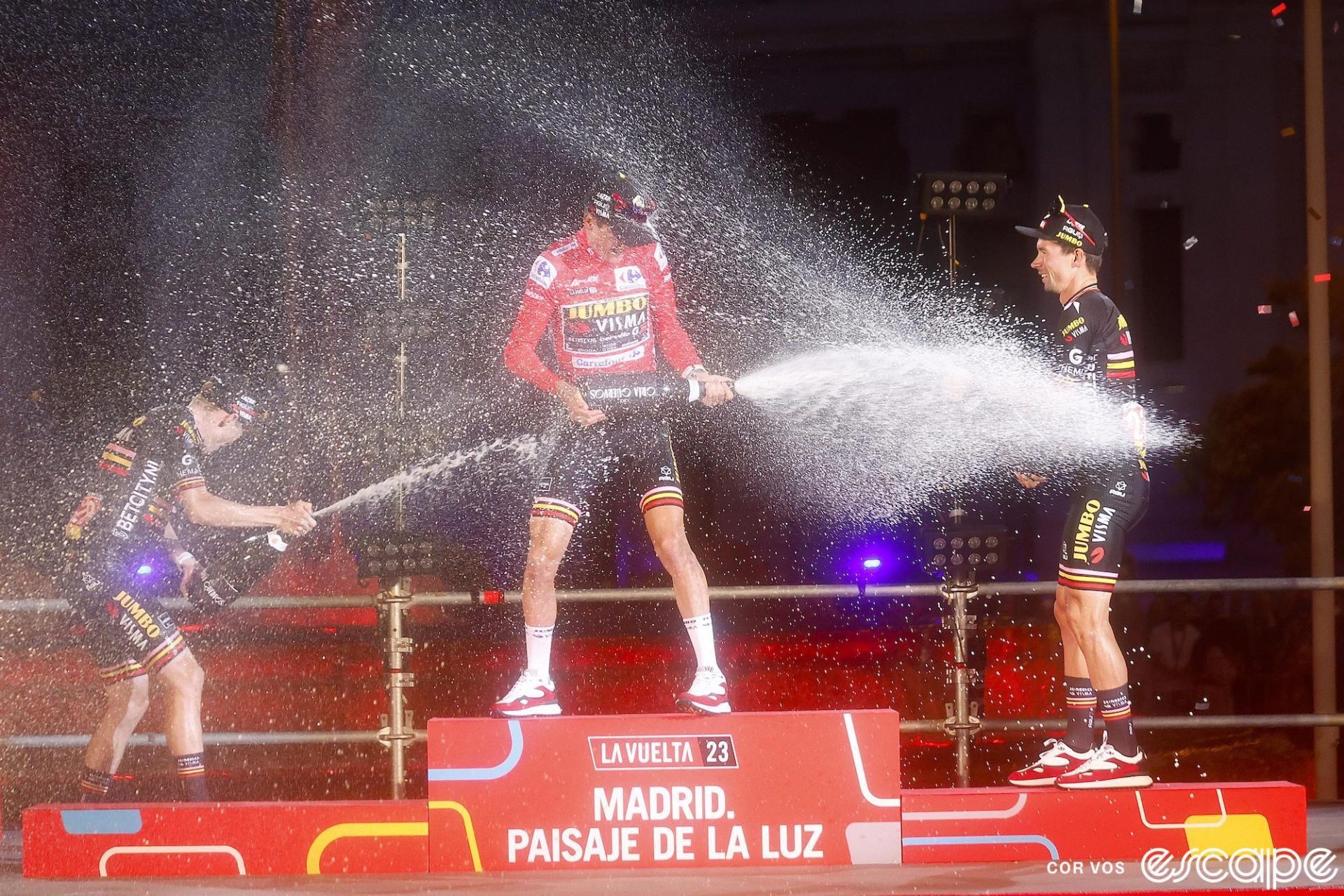
As fantastic as winning the Vuelta felt, he said, what sustained him through the race was less the thought of victory and more the process and journey that got him there. Winning, he said, "was very, very fleeting, because it's just a bike race. But the feelings that stay with me are the adventures I had on my bike leading up to that race, how I was able to push myself in training and the races, and just overall my enjoyment for riding a bike, which I felt the whole season, even more than any other seasons.
"And that's why I was able, I think, to do three Grand Tours. The third one that I did was just from the wholesome nature of enjoying every day I had on the bike and I never, ever once in the season felt tired or beat down or demotivated. It was the opposite, just because I was loving the bike and experiencing new things. And for me that's that's the feeling that I will never forget. The wins and those emotions you remember, but they're not the feelings that stay with you."
Caley Fretz conducted this interview with Kuss in Durango on Thursday, October 19.
Did we do a good job with this story?

